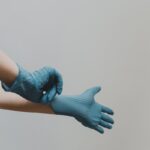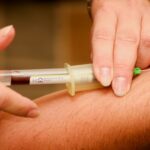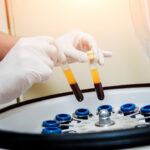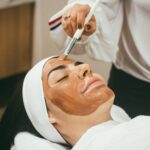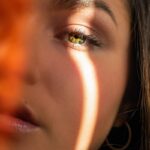A recent study, Anti-ageing Bionic and Polyhydroxy Acids Reduce Non Enzymatic Protein Glycation and Skin Sallowness, was presented at FACE by Dr Beth Briden, Professor of Dermatology at the University of Minnesota.
The Study demonstrates that polyhydroxy and bionic acids are cosmetic ingredients which can help preserve the skin’s natural collagen and improve sallowness acting as glycation inhibitors to provide younger and healthier looking skin.
Dr Beth Briden said: “Over the years we have focused on the effects of photodamage as the principle cause of ageing skin but more recently the detrimental effects of sugar on skin health have been studied and cannot be overlooked. This particular study is significant because when looking to develop a skin health or skin rejuvenation programme, it underpins the need to include an anti-glycation strategy. The effects of glycation cannot be reversed but the study shows that lactobionic acid, maltobionic acid and gluconolactone are able to reduce non-enzymatic glycation comparably to the potent inhibitor, aminoguanidine.”
 Maltobionic acid, lactobionic acid and gluconolactone are unique, patented skincare ingredients found in the NeoStrata Skin Active skincare range. In addition to providing powerful protection against environmental aggressors and photoaging, the study demonstrates that these potent ingredients are also glycation inhibitors and interfere with the formation of AGEs, so helping to preserve the functionality of collagen and the appearance of healthy, firm skin.
Maltobionic acid, lactobionic acid and gluconolactone are unique, patented skincare ingredients found in the NeoStrata Skin Active skincare range. In addition to providing powerful protection against environmental aggressors and photoaging, the study demonstrates that these potent ingredients are also glycation inhibitors and interfere with the formation of AGEs, so helping to preserve the functionality of collagen and the appearance of healthy, firm skin.
Glycation is one of the many natural ageing processes that occur in the skin. It is caused by the non-enzymatic joining of a sugar (glucose) with a protein (collagen) forming detrimental Advanced Glycation End-products known as “AGEs”.
Advanced Glycation End-products stem from glycation which refers to a chemical process whereby the addition of a carbohydrate (sugar) to a protein (collagen) without the involvement of an enzyme. The negative effects of glycation have been studied most extensively in diabetes. Too much sugar can increase the body’s insulin level, which can lead to inflammation. In skin, AGEs form in the upper dermis and lead to a sallow appearance and loss of radiance. They also cause a gradual deterioration of collagen due to undesired cross-linking, resulting in dermal inflexibility and wrinkling.
Whilst glycation is an inevitable consequence of ageing and cannot be reversed, damage limitation steps can be taken using NeoStrata Skin Active skincare products which contain polyhydroxy and bionic acids clinically proven to provide potent anti glycation and anti oxidant effects to preserve and promote skin health.
Skin Active is especially formulated to tackle ageing skin and deliver outstanding rejuvenating effects; lifting, firming, plumping and restoring skin tone for a noticeably younger and healthier complexion.
For more information about NeoStrata Skin Active visit www.aestheticsource.com.







